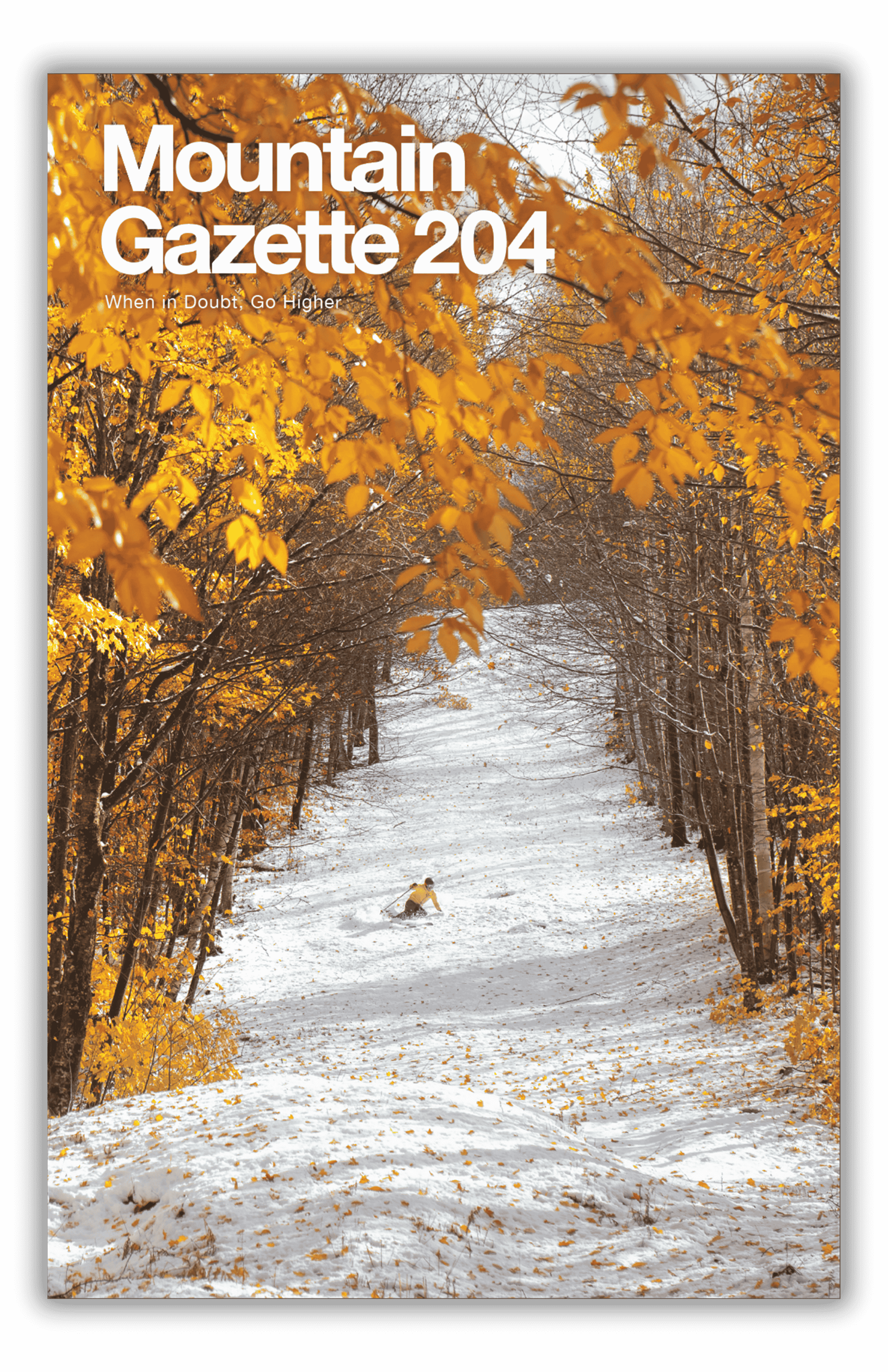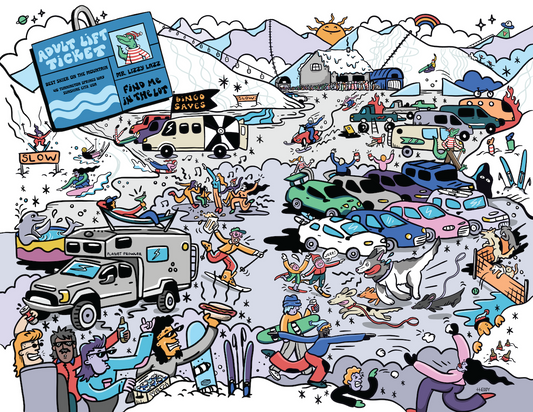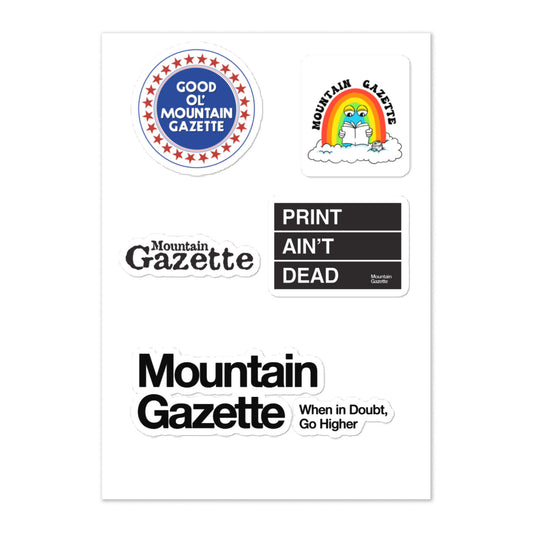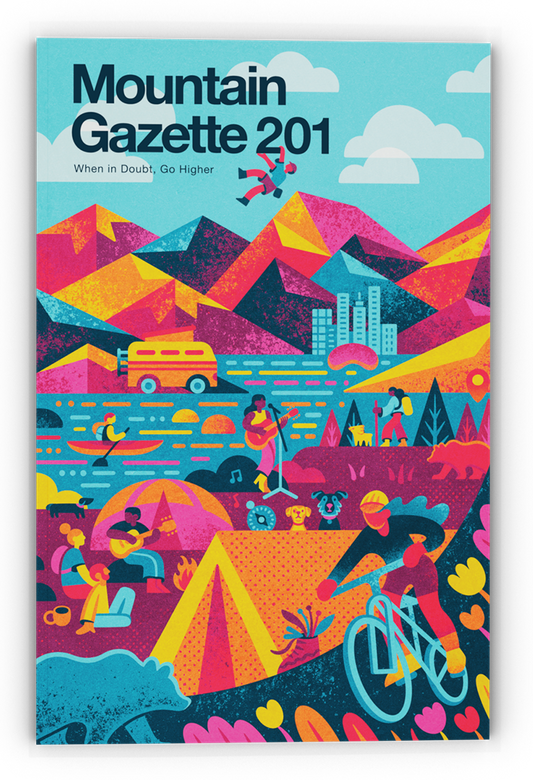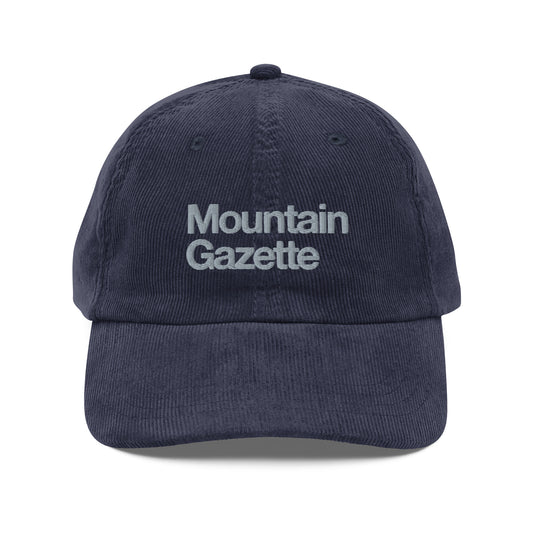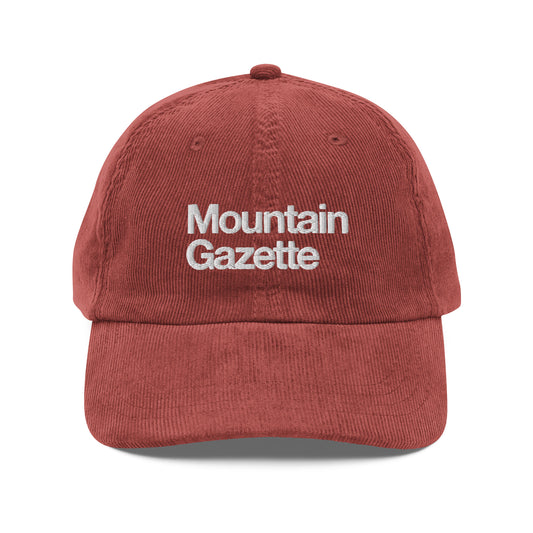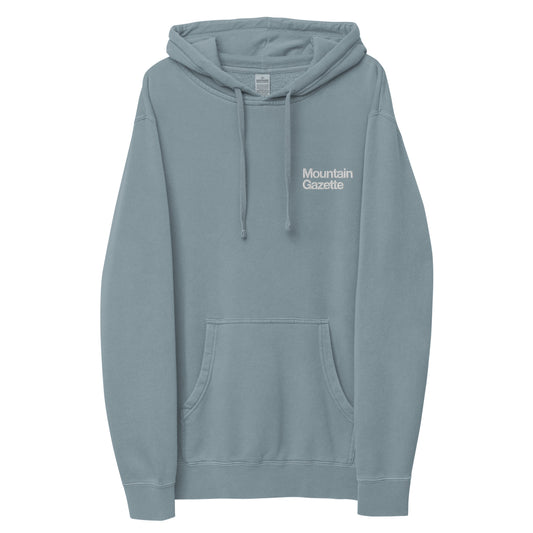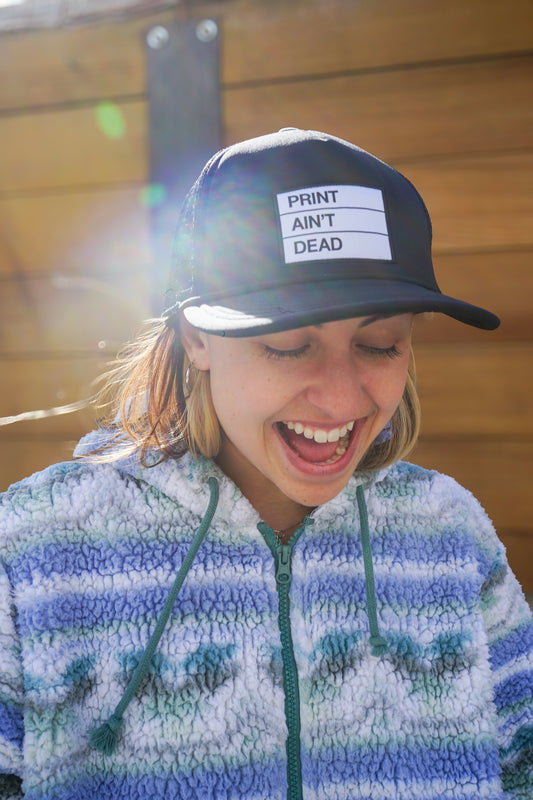
A Q&A with Santa Barbara journalist and Mountain Gazette contributor Tiana Molony
By Hannah Truby
Raised on Dos Pueblos Ranch, a historic property along the Santa Barbara coastline, Tiana Molony spent her childhood exploring and enjoying its acreage, cultivating within her a deep appreciation for the region. She reflects on this time in her essay for The Santa Barbara Independent, while also coming to terms with its inevitable transformation.
“Accepting that this special place has a destiny I can’t control was one of the most transformative lessons,” she writes. The piece, one of Molony's first to be published, is about acceptance, the inevitability of change, and the places that shape us.
Today, Molony is a local journalist covering the Santa Barbara region. Driven by a love and curiosity for the place she calls home, her reporting covers a wide range of topics and issues.
“My editor will come to me with something, and I always just say yes—no matter what it is,” says Molony. “I always say yes, which I think has led to being assigned these stories that other people might not find too interesting, but I do.”
With a master’s degree in journalism from NYU and bylines in publications such as The Santa Barbara Independent, Montecito Journal, and Mountain Gazette, much of Molony’s work thus far places community voices at the center.
“A lot of my work is about giving people a platform,” she says, reflecting on a recent interview with a local business owner who moved from Mexico and started a hat company. “He described being here as a dream come true. Stories like that reaffirm how special this place is, and remind me why this work is so important.”
Continue reading for a Q&A with journalist and Mountain Gazette contributor Tiana Molony.
Hannah: A lot of your writing centers on or around Santa Barbara, where you were born and raised. What’s your favorite part about the area?
Tiana: Gosh, I love Santa Barbara for so many reasons. Of course, it's beautiful, but there are just so many amazing cultures and different types of people here. It’s special.
How did growing up on Dos Pueblos Ranch influence your writing? Do you think being a native to the area grants you any advantages when reporting?
I’d say so. The Ranch had been in our family since the 70s when my grandpa had bought it, and growing up there inspired me to want to explore every corner of it, which extended to the rest of Santa Barbara. The whole area is really a special place, and a lot of my stories involve talking to people who have come here specifically to make their dreams a reality. I just interviewed a business owner here who came from Mexico and started his own hat company and said that being here in Santa Barbara is like a dream come true for him. Hearing stories like that reaffirms just how special this place is.

Looking through your portfolio, it looks like you write about a lot of different things. Would you say you have a particular beat? How do you choose the stories you want to tell?
I don’t have a specific beat, and I don't really know if I want one. I love being able to cover anything—profiles or longer features or breaking news. I don’t want to hold myself to just one specific topic. My editor will come to me with something, and I always just say yes, no matter what it is or how much knowledge I might lack in it. I always say yes, which I think has led to being assigned these stories that other people might not find too interesting, but I do.
What's an example of that?
I’m currently working on a bigger piece for the Montecito Journal’s winter issue about all of the changes that are coming to Montecito. We had the mudslides that happened in 2018, which followed the Thomas fire, and those were really big events for the town. The lockdown happened shortly after, and a lot of businesses have closed down, so it’s just been years of big events. The story is looking back at everything that’s happened over the past six years and the changes they’ve brought.
Because it's more of an affluent area, many people don't know the impacts these things have had on it.
Your work spans across publications like The Santa Barbara Independent and Flaunt Magazine. How do you adapt your voice for different audiences?
It's actually pretty hard. Reading other people’s work helps, actually. As I go back and forth between different types of stories, I find that what helps me is to read other stories that are similar to get a refresher. Sometimes if I jump into a more creative type of story after just working on a hard news story, I’ll read The New Yorker to get me back into that groove.
Your story for Mountain Gazette 202, “Nightly Walks with Dad,” is a short and personal one. I especially loved your line, “It felt like I had returned to him on those walks.” What inspired you to write this story?
I was thrilled when Mike accepted it because I’d had this story in mind for a while but hadn’t figured out where it should live. The story really started during COVID when my dad and I began going on these walks together. At first, I didn’t realize how much that time together meant to him; it was just a way for me to get out of the house. But over time, I saw how close we’d become just from walking together in nature, talking, even if it was just about our day.
You, like me, just finished school this past May. How are you liking being a freelance journalist thus far?
Freelancing allows me to work on my own time, which I am grateful for. It’s funny; I am most productive for a few hours in the morning and a few hours at night. I hate that middle part of the day—writer's block happens to me most at that time. I don’t know why.

One piece of advice, freelancer-to-freelancer?
Whenever I have an idea for a story, I add it to a running list in Excel, so I don’t forget it. That list keeps me motivated, knowing there are so many stories I can tell—even if, at times, it feels like everything’s already been told.
As a journalist, do you find it difficult to write about personal, maybe more vulnerable things when you know an audience will inevitably read it?
I definitely find it difficult. There were a lot of things with both of those stories that I cut out because when you're writing about personal stuff, you get to the point where you have to decide what you are okay with the audience knowing about yourself. It's very vulnerable to write about things like that. But I think in the end, I decide based on whether the story will be better with it, whether my voice will come across clearer, and if my idea will be communicated effectively.
Lastly, what’s an example of a story you’ve reported that reflects why you pursued journalism?
I've been covering a news story for The Montecito Journal about affordable housing. A hotel in Montecito called The Miramar wants to expand and build market-rate and affordable housing and luxury shops, but the problem is many neighbors are against the project and are concerned that the new project will bring traffic into the area. Almost everyone supports affordable employee housing, but it’s certainly a tricky situation. It’s the kind of story that may seem trivial to someone unfamiliar with this town, but it’s been an eye-opening experience.
I’ve been attending the county meetings and listening to public comments. I feel so fortunate to be able to cover this story and share all perspectives. It’s why I got into journalism in the first place: to tell every side of the story and give everyone a voice.


